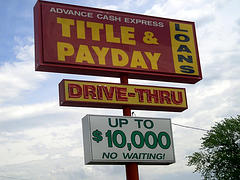It is not often that residential real estate cases make it to the Supreme Court, but in this instance Coldwell Banker tangled with a very wealthy buyer of a very expensive ($12.25 million) house. Presented was the common scenario in which the two agents in the deal both were licensed under the same large corporate broker. This house was marketed as 15,000 square feet, and the buyer discovered it was actually 3-5,000 sq. ft. smaller. The salesman who listed the property made the inaccurate representation. The Buyer claimed that, as the broker was a dual agent, so was this listing salesman (“associate licensee”) – owning the buyer the same duties that he had owed the seller. The Supreme Court addressed whether the associate licensee owed to the buyer a duty to learn and disclose all information materially affecting the value or desirability of the property, including the discrepancy between the square footage of the residence’s living area as advertised and as reflected in publicly recorded documents. This is an issue frequently presented to Sacramento real estate attorneys – whether the listing agent owes any duty to the buyer. It was undisputed that Coldwell Banker owed such a duty to the buyer. Now, the Supreme Court has ruled that the associate licensee, who functioned on Coldwell Banker’s behalf in the real property transaction, owed to the buyer an “equivalent” duty of disclosure under Civil Code section 2079.13, subdivision (b).
 In the case of Horiike v. Coldwell Banker Residential Brokerage Company, the buyer had been working with a Coldwell Banker agent in looking for a house. She connected him with this listing agent, who had listed this Malibu property for sale. According to an interview with the NY Times, this agent told the buyer that the property had 15,000 square feet of living area and was the largest property available in Malibu. “He said that there was new regulation that prohibited developers from building over 11,000 square feet, and that made the property unique and also a very good investment prospect.” This same agent had previously told a different potential buyer multiple times that they did not warrant the square footage, and that they should hire a specialist to verify it. However, he did not tell this to Mr. Horiike. After the sale closed, the buyer wanted to add a sunroom and learned about the discrepancy in size. This lawsuit followed. The NY Times article linked to above indicates that this particular salesman, with a Hollywood client list, has a record of overstating the size of homes which he has listed.
In the case of Horiike v. Coldwell Banker Residential Brokerage Company, the buyer had been working with a Coldwell Banker agent in looking for a house. She connected him with this listing agent, who had listed this Malibu property for sale. According to an interview with the NY Times, this agent told the buyer that the property had 15,000 square feet of living area and was the largest property available in Malibu. “He said that there was new regulation that prohibited developers from building over 11,000 square feet, and that made the property unique and also a very good investment prospect.” This same agent had previously told a different potential buyer multiple times that they did not warrant the square footage, and that they should hire a specialist to verify it. However, he did not tell this to Mr. Horiike. After the sale closed, the buyer wanted to add a sunroom and learned about the discrepancy in size. This lawsuit followed. The NY Times article linked to above indicates that this particular salesman, with a Hollywood client list, has a record of overstating the size of homes which he has listed.
 The defendant argued that the disclosure statutes only imputed the duties of the salesperson to the broker, and not the other way around – thus, the dual agency concern was not imputed to the salesmen. The court disagreed. Referencing Civil Code § 2079.13, it found that by describing an associate licensee’s duty in a real property transaction as “equivalent to” the duty of the “broker for whom the associate licensee functions,” the provision specifies that when an associate licensee represents a brokerage in a real property transaction, his or her duties are the same as those of the brokerage.
The defendant argued that the disclosure statutes only imputed the duties of the salesperson to the broker, and not the other way around – thus, the dual agency concern was not imputed to the salesmen. The court disagreed. Referencing Civil Code § 2079.13, it found that by describing an associate licensee’s duty in a real property transaction as “equivalent to” the duty of the “broker for whom the associate licensee functions,” the provision specifies that when an associate licensee represents a brokerage in a real property transaction, his or her duties are the same as those of the brokerage.
 In BRE DDR BR Whittwood Ca LLC v. Farmers & Merchants Bank of Long Beach, a shopping center tenant needed a loan to finance construction. The lease allowed the Tenant to encumber its leasehold interest through a mortgage, but presumed that a mortgage lender who succeeded to Tenant’s interest assumed Tenant’s obligations. The lease stated:
In BRE DDR BR Whittwood Ca LLC v. Farmers & Merchants Bank of Long Beach, a shopping center tenant needed a loan to finance construction. The lease allowed the Tenant to encumber its leasehold interest through a mortgage, but presumed that a mortgage lender who succeeded to Tenant’s interest assumed Tenant’s obligations. The lease stated:  California Real Estate Lawyers Blog
California Real Estate Lawyers Blog





 In
In  In
In  In
In  The case is
The case is  In
In  In
In